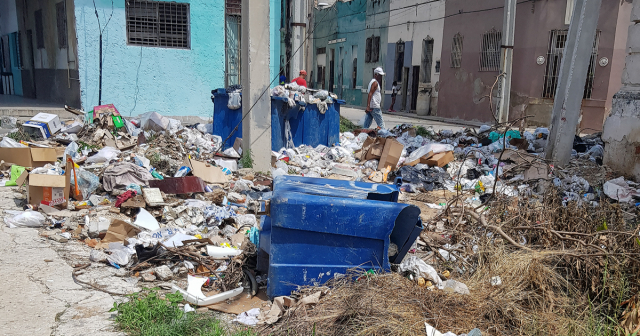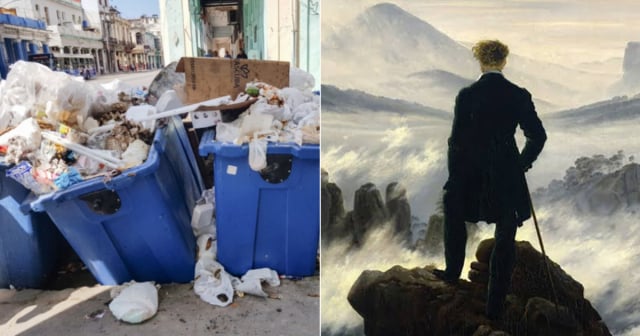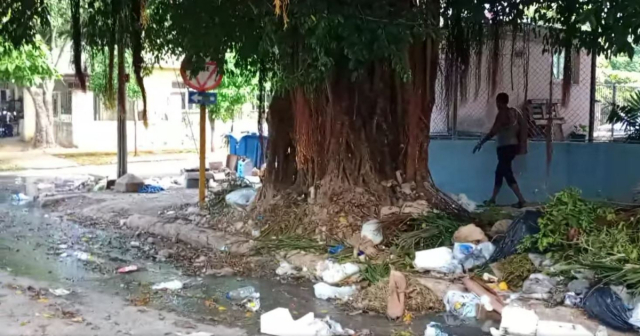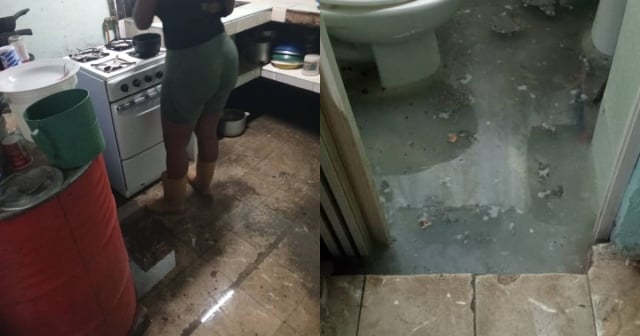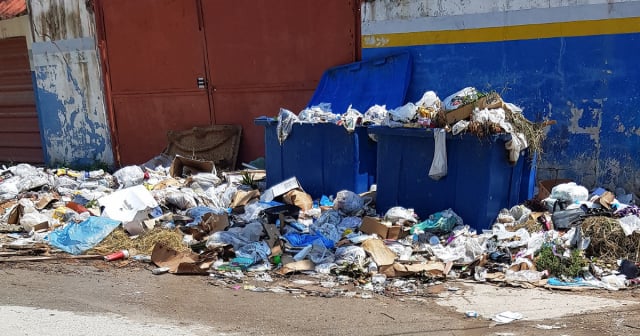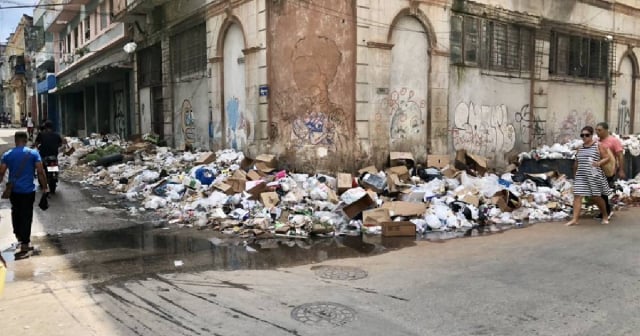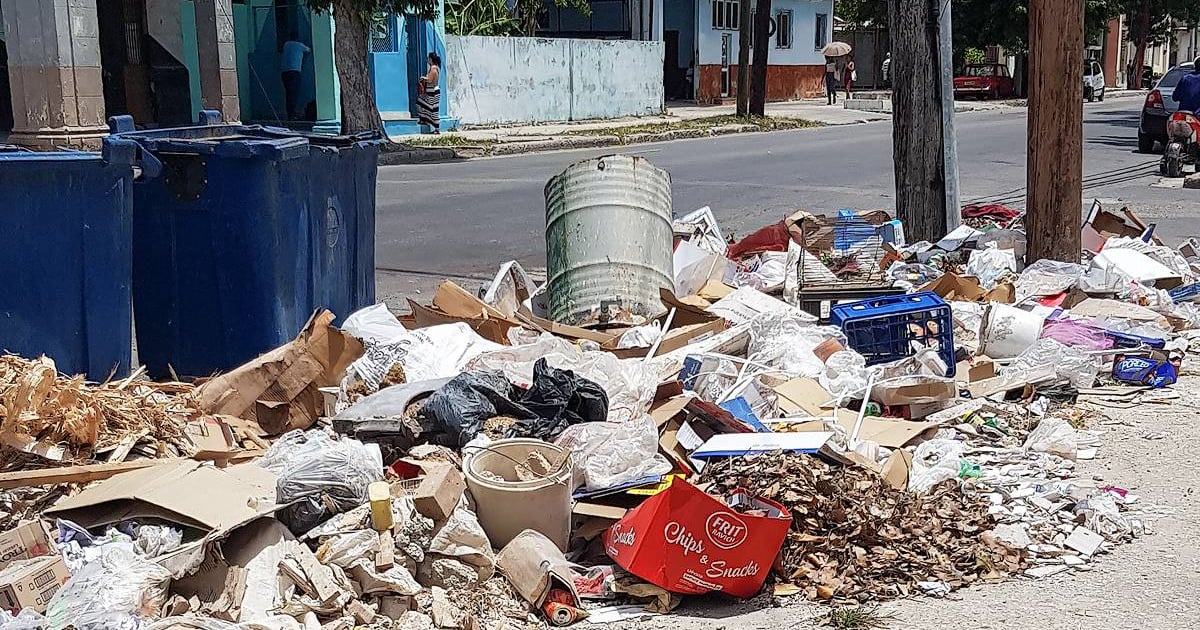
Havana is facing an alarming situation with the imminent arrival of Hurricane Rafael, currently a category 2 storm that could intensify. The Cuban capital has tons of garbage piled up in its streets, a problem that has been overlooked by local authorities for years.
The lack of an efficient waste management system and the deterioration of infrastructure pose a direct threat to citizens. Collecting tons of waste is the responsibility of the state, and the inability to fulfill this task places the people of Havana in a seriously vulnerable situation.
The people, in addition to their daily hardships, must now prepare for the potential consequences of this state negligence. Here are some of the issues that will worsen in the city in the coming days.
1. Drainage blockages and risk of flooding
The accumulated garbage on streets and sidewalks could block drains, hindering proper rainfall drainage. Without a clean and functioning sewage system, Havana is at risk of experiencing massive flooding.
This risk could impact the most vulnerable neighborhoods, where residents are already struggling with significant shortages.
2. Severe flooding in residential areas
The lack of maintenance in the drainage systems, which is the government's responsibility, could lead to catastrophic flooding in the city's lowest residential areas.
The government is aware, and since Sunday they began dredging the mouth of some rivers, but the population insists that the work was not carried out in all the areas where it is needed.
3. Increase in infectious diseases
The accumulation of garbage and standing water creates a breeding ground for diseases like dengue and leptospirosis. These conditions, partly caused by inadequate waste management, elevate the risk of epidemic outbreaks that threaten public health.
4. Pests and sanitary contamination
Rats, mosquitoes, and cockroaches thrive in garbage-filled environments with standing water. The responsibility for keeping the streets clean lies with the State. Citizens cannot control the rise of pests under these conditions. The current situation could lead to an increase in diseases transmitted by these vectors.
5. Contamination of drinking water
Intense rainfall can cause toxic waste from garbage to seep into groundwater, affecting the quality of drinking water.
The lack of waste management puts citizens' health at risk, as they must prepare for the possibility of their water sources becoming contaminated. The government recommends boiling water, an important measure that should be implemented in every household immediately, but this does not address the underlying problem.
6. Foul odors throughout the city
The mix of decaying waste and rainwater will release unpleasant odors throughout Havana, a populous city that already appears dirty and has highly contaminated areas.
7. Difficulties in transit
The debris scattered by the strong winds of Hurricane Rafael could obstruct streets and roads, making it difficult for emergency vehicles and citizens to pass. The state's lack of foresight in waste collection poses an additional risk in emergency situations.
8. Damage to infrastructure and housing
The dragging of heavy objects among the trash due to heavy rains and water currents could pose risks to people, homes, and the city's infrastructure. Citizens lack the resources to safeguard their homes from these dangers that could have been prevented with an efficient collection system.
9. Economic Impact and Saturated Resources
The state's response to the hurricane could be compromised by the need to allocate resources to manage the chaos of waste rather than addressing other emergencies. This situation represents another economic blow in a country where basic resources are already scarce.
10. Deterioration of the Urban Landscape of Havana
The accumulation of garbage in the streets paints a picture of neglect that impacts both residents and tourism. The arrival of Hurricane Rafael highlights the government's inability to effectively manage the city.
Instead of solutions, the people of Havana only receive warnings. The Cuban government merely urges the population to maintain hygiene and store drinking water. However, the public cannot tackle the issue of the accumulation of tons of garbage in the streets on their own.
The lack of government action and planning jeopardizes the health, well-being, and safety of Havana in this emergency.
What do you think?
COMMENTFiled under:

